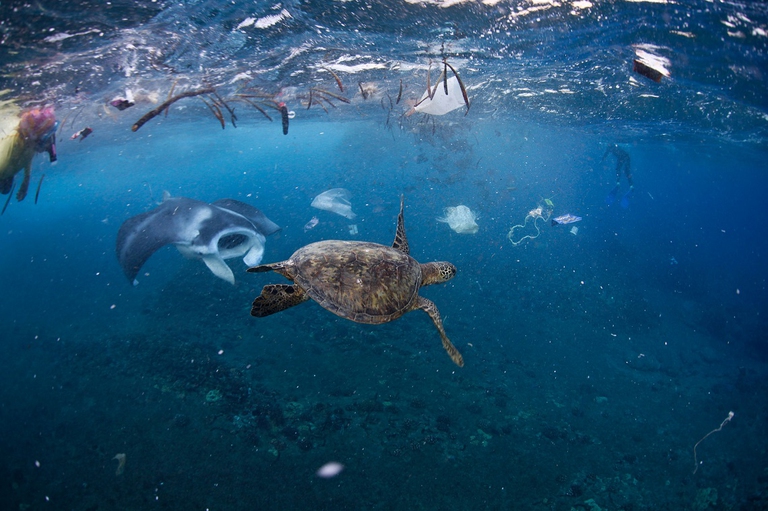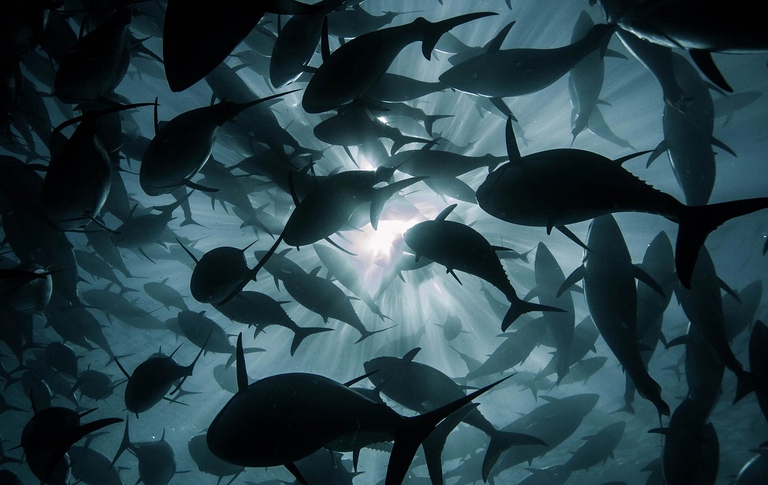
A group of experts in Tokyo suggested pouring radioactive water from Fukushima into the open sea. A marine biochemist explains the consequences of this absurd decision.
Si è svolta a Bruxelles la conferenza di presentazione della Blue society, organizzazione nata per favorire una gestione collettiva e sostenibile del mare.
What happens underneath the water seems so distant and mysterious to us. It is an alien world, unfit to man, which is born to live on dry land. Yet if we look at our planet from space, we would realise that blue is the dominant colour. Indeed, water covers 71% of the Earth’s surface.
Oceans gave life to everything, and life could end without them. They regulate climate, produce part of the oxygen we breathe, sustain millions of people every year, are necessary for the production of many medicines, and are home to an incredible biodiversity. However, oceans’ health is extremely fragile due to increasing man-related activities.
The safeguard of oceans was the very issue tackled on 18 November in occasion of the presentation of the Blue Society project at the European Parliament in Brussels. The initiative, managed by the organisation Sea for Society, has been joined by over 500 European stakeholders, researchers, economists, politicians, and entrepreneurs, committed to building a “blue society” able to encourage a collective and sustainable management of oceans.
The event in Brussels, organised in collaboration with the European Parliament Intergroup on Climate Change, Biodiversity and Sustainable Development, represented the perfect occasion to bring together ideas and solutions aimed at improving the relationship between humans and oceans.
“Ocean acidification is invisible, oxygen production is invisible, and all ecosystem services are invisible. It is thus necessary to show these phenomena to society and underline their huge importance,” said one of the lecturers, doctor Tiago Pitta e Cunha, environmental consultant of Portugal’s President.
The project, realised by Sea for Society, aims to raise governments’ and public’s awareness on the importance of oceans, supporting actions aimed to protect sea and improve the management of this shared heritage.
The conference, moderated by Ricardo Serrao Santos, European Deputy and former Head of the Department of Oceanography and Fishery of the University of the Azores, pointed outoceans’ high economic value, able to generate some 5.4 million jobs in Europe, equal to almost 500 billion euros per year.
“We need to learn from errors made by other economic models,” said Sarrao Santos. “Particularly, those that altered the planet’s balance over the past centuries, giving life to climate change”.
Siamo anche su WhatsApp. Segui il canale ufficiale LifeGate per restare aggiornata, aggiornato sulle ultime notizie e sulle nostre attività.
![]()
Quest'opera è distribuita con Licenza Creative Commons Attribuzione - Non commerciale - Non opere derivate 4.0 Internazionale.
A group of experts in Tokyo suggested pouring radioactive water from Fukushima into the open sea. A marine biochemist explains the consequences of this absurd decision.
The decline in grey and humpback whales in the Pacific and Atlantic Oceans has been traced to food shortages caused by rising ocean temperatures.
The United Nations has launched a major international alliance for ocean science, undertaking a mission close to all our hearts.
The cargo ship that ran aground off the coast of Mauritius on 25 July, causing incalculable damage, has split in two and its captain has been arrested.
The largest coral reef in the world is severely threatened by climate change, but researchers are developing strategies that could contribute to saving the Great Barrier Reef.
Seychelles have extended its marine protected area, which now covers over 400,000 square kilometres, an area larger than Germany.
Norwegian oil giant Equinor had pulled out of drilling for oil in the Great Australian Bight, one of the country’s most uncontaminated areas. A victory for activists and surfers who are now campaigning for the area to be protected forever.
30 per cent of the planet needs to be protected to stop precipitous species decline. The UN has set out its aims for the the COP15 on biodiversity scheduled for Kunming, China in October.
Ocean warming has risen to record highs over the last five years: just in 2019 the heat released into the world’s oceans was equivalent to that of 5-6 atomic bombs per second. The culprit, no doubt, is climate change.










